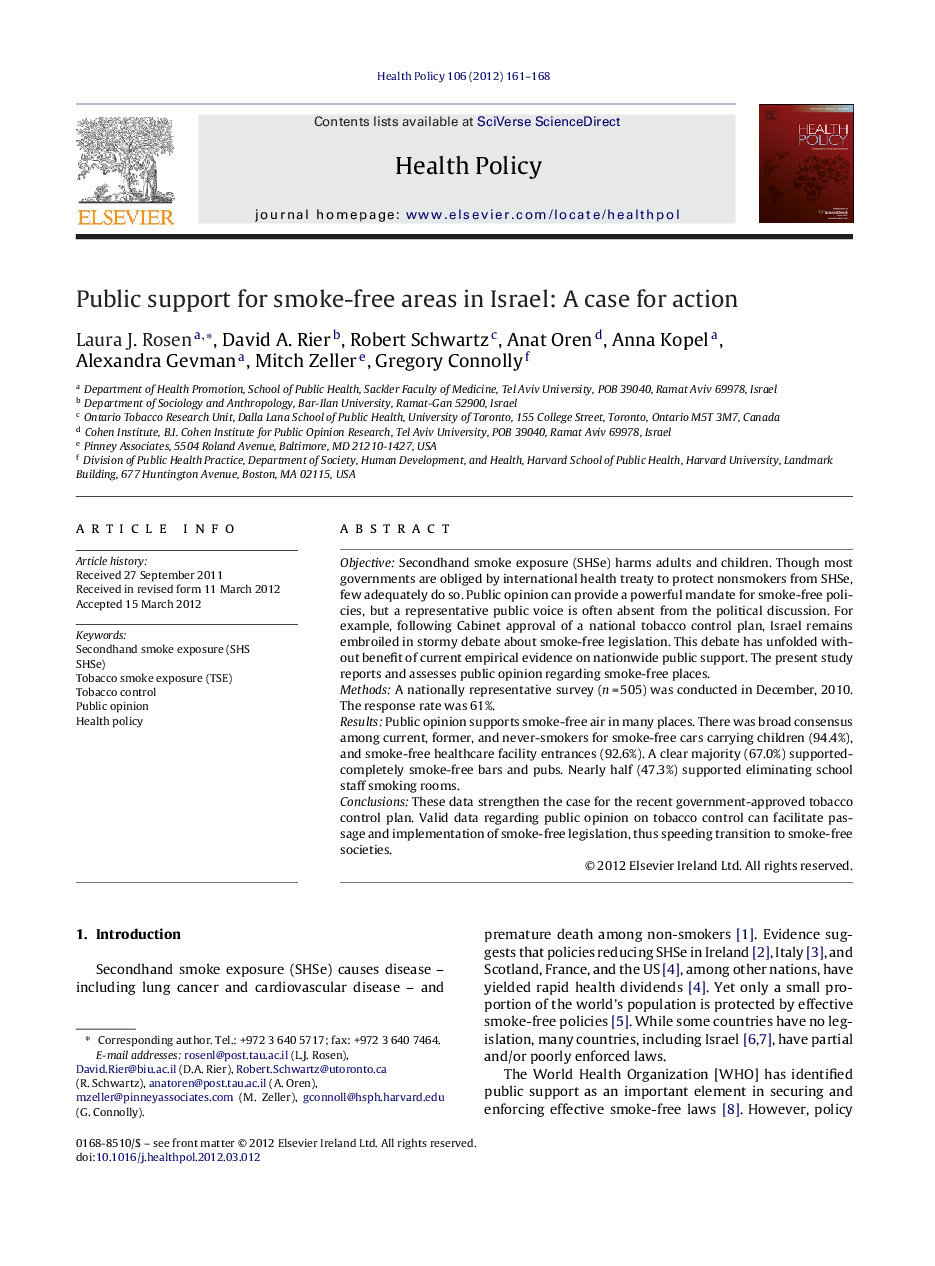| Article ID | Journal | Published Year | Pages | File Type |
|---|---|---|---|---|
| 4198036 | Health Policy | 2012 | 8 Pages |
ObjectiveSecondhand smoke exposure (SHSe) harms adults and children. Though most governments are obliged by international health treaty to protect nonsmokers from SHSe, few adequately do so. Public opinion can provide a powerful mandate for smoke-free policies, but a representative public voice is often absent from the political discussion. For example, following Cabinet approval of a national tobacco control plan, Israel remains embroiled in stormy debate about smoke-free legislation. This debate has unfolded without benefit of current empirical evidence on nationwide public support. The present study reports and assesses public opinion regarding smoke-free places.MethodsA nationally representative survey (n = 505) was conducted in December, 2010. The response rate was 61%.ResultsPublic opinion supports smoke-free air in many places. There was broad consensus among current, former, and never-smokers for smoke-free cars carrying children (94.4%), and smoke-free healthcare facility entrances (92.6%). A clear majority (67.0%) supportedcompletely smoke-free bars and pubs. Nearly half (47.3%) supported eliminating school staff smoking rooms.ConclusionsThese data strengthen the case for the recent government-approved tobacco control plan. Valid data regarding public opinion on tobacco control can facilitate passage and implementation of smoke-free legislation, thus speeding transition to smoke-free societies.
